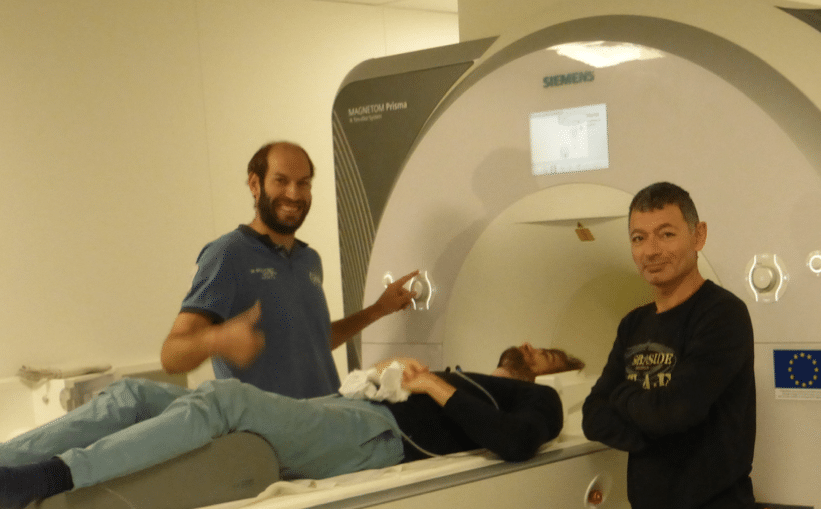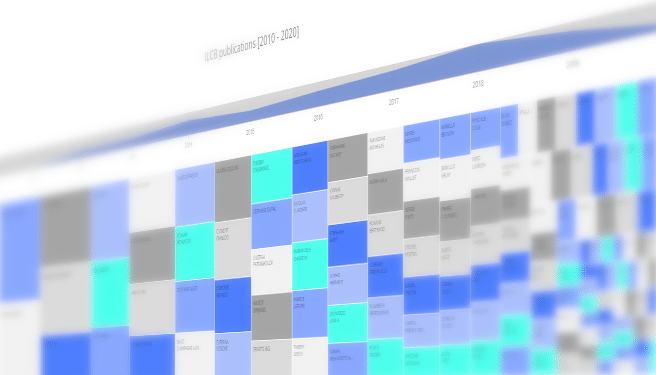
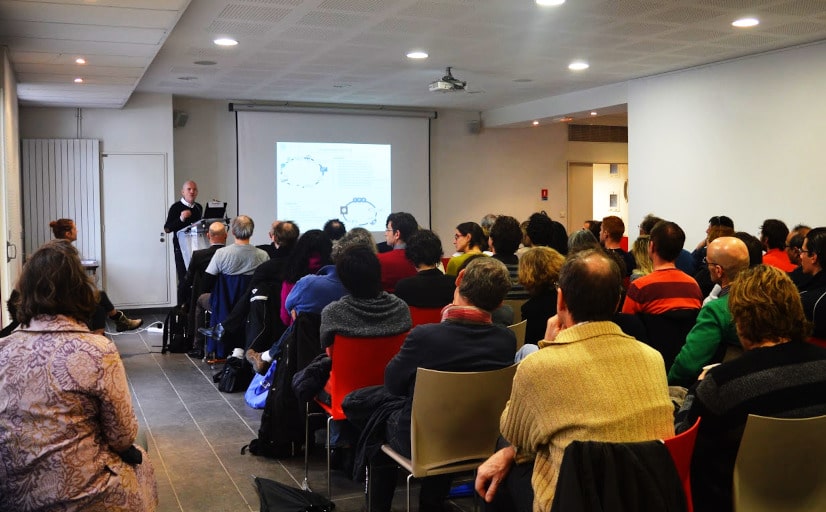
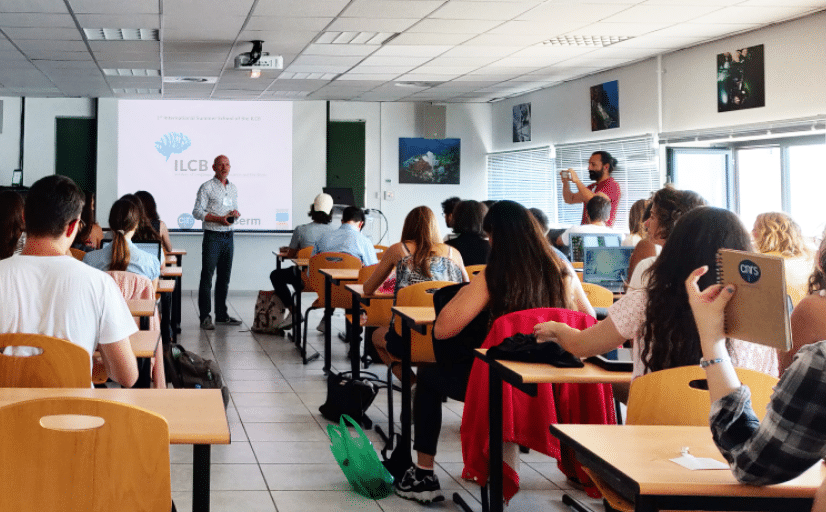
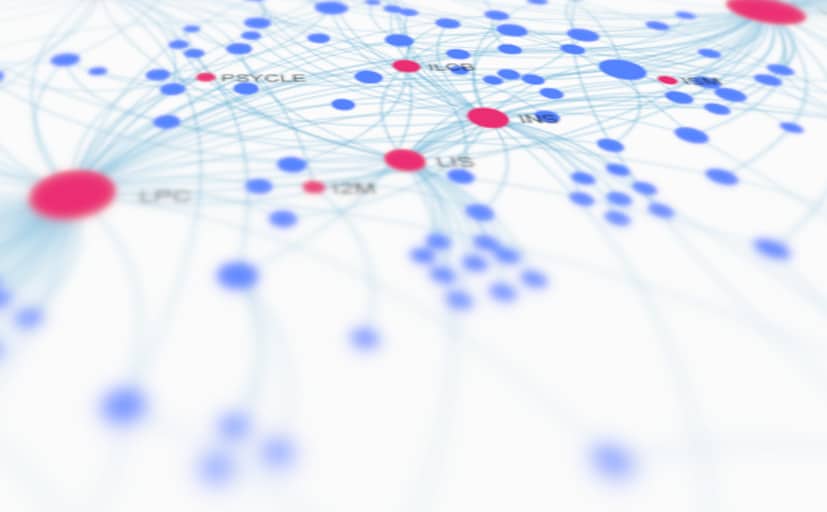
FEATURED PUBLICATIONS
Speaking to a common tune: Betweenspeaker convergence in voice fundamental frequency in a joint speech production task Vincent Aubanel, Noël Nguyen
2020 PLOS/ONE
read more >>
Learning to Read and Dyslexia: From Theory to Intervention Through Personalized Computational Models Johannes C. Ziegler, Conrad Perry, Marco Zorzi
2020 Current Directions in Psychological Science
read more >>
Error-based learning and lexical competition in word production: Evidence from multilingual naming Elin Runnqvist, Kristof Strijkers, Albert Costa
2019 PLOS/ONE
read more >>
Constraints on the lexicons of human languages have cognitive roots present in baboons (Papio papio) Emmanuel Chemla, Isabelle Dautriche, Brian Buccola, and Joël Fagot.
2019 PNAS
read more >>
High-fidelity copying is not necessarily the key to cumulative cultural evolution: a study in monkeys and children Carmen Saldana, Joël Fagot, Simon Kirby, Kenny Smith, Nicolas Claidière
2019 Proceedings of the royal society B
read more >>
Bringing together experts in linguistics, neuroscience, psychology, medicine and computer science to understand and to model the way that language functions.
The objective is to create a generic model of the processing of language and its cerebral bases.
SUMMER SCHOOL
The 3d Edition of the ILCB Summer School offers Introductory, Intermerdiate and Advanced Classes in four core fields of Cognitive Science, reflecting the expertise of the Institute.
read more >>
PhD PROGRAM
An interdisciplinary focus on language research, with interdisciplinary theory and practice trainings at basic and advanced level courses in all relevant disciplines.
read more >>
MASTER
The MaSCo, a new MA in Cognitive Science, provides an advanced scientific curriculum on human cognition, as well as a technological and methodological expertise in evaluation, analysis and modeling of cognitive processes.
read more >>
TRAINING
Advanced trainings are offered to the ILCB members
read more >>
Recent
news and events
Upcoming Events Loop
It seems we can’t find what you’re looking for. Perhaps searching can help.
Post Loop
Using Virtual Reality to Assess Reading Fluency in Children.
Jonathan Mirault, Jean-Patrice Albrand, Julie Lassault, Jonathan Grainger and Johannes C. Ziegler (2021) Front. Educ. 6:693355. 10.3389/feduc.2021.693355 Here we provide a proof-of-concept for the use of virtual reality (VR) goggles to assess reading behavior in beginning readers. Children performed a VR version of a lexical decision task that allowed us to record eye-movements. External validity […]
4th Edition of the ILCB Summer School
The 4th Edition of the ILCB Summer School will take place from August 30th to September 3rd, 2021. It will offer Introductory and Advanced Classes in four core fields of cognitive science, reflecting the expertise of the Institute: • Applied mathematics, statistics and networks, • Neuroscience and behavior • Language and cognition, • Computer […]
Núria Gala, AMU associate professor
Dr. Núria Gala is an Associate Professor (with the French Habilitation to supervise research) working at the Laboratoire Parole et Langage (LPL UMR 7309) and at the Department of Language Sciences at Aix Marseille Université (AMU). Núria’s research in applied linguistics and natural language processing focuses on describing what makes a text difficult to read […]
Isabelle Dautriche, CNRS research scientist
Isabelle Dautriche is a CNRS research scientist working at the Laboratoire de Psychologie Cognitive (LPC). Her research focuses on language development and its link to the structure of languages. How do children quickly learn such a complex system? Why are languages the way they are? To answer these questions she relies on psycholinguistic experiments with […]
Quote of the month
“Mes pensées dorment, si je les assis. Mon esprit ne va, si les jambes ne l’agitent.“ (“My thoughts sleep, if I sit them down. My mind is not fine unless my legs shake it.“) Michel de Montaigne, Essais, livre III le contexte
A stimulus-brain coupling analysis of regular and irregular rhythms in adults with dyslexia and controls
Anna Fiveash, Daniele Schön, Laure-Hélène Canette, Benjamin Morillon, Nathalie Bedoin, & Barbara Tillmann Brain and Cognition, 140, 2020, 105531 https://doi.org/10.1016/j.bandc.2020.105531 When listening to temporally regular rhythms, most people are able to extract the beat. Evidence suggests that the neural mechanism underlying this ability is the phase alignment of endogenous oscillations to the external stimulus, allowing […]
As time goes by: Space-time compatibility effects in word recognition.
Camille L. Grasso, Johannes C. Ziegler, Jonathan Mirault, Jennifer T. Coull, & Marie Montant Journal of Experimental Psychology: Learning, Memory, and Cognition. Advance online publication. https://doi.org/10.1037/xlm0001007 The processing of time activates a spatial left-to-right mental timeline, where past events are “located” to the left and future events to the right. If past and future words […]
How do people process words that refer to time?
(A) Basic design for “yes” responses (words). Word position and contingency with mental line are manipulated. (B) Task design. A prime (“yesterday” or “tomorrow”) was followed by a real target word or pseudo-word; lexical decisions were made after the onset of the target by moving a pen on the trackpad towards the left or right. […]
Transfer, Collection and Organisation of Electrophysiological and Imaging Data for Multicentre Studies
Nicolas Roehri, Samuel Medina Villalon, Aude Jegou, Bruno Colombet, Bernard Giusiano, Aurélie Ponz, Fabrice Bartolomei, & Christian-George Bénar Neuroinformatics (2021). https://doi.org/10.1007/s12021-020-09503-6 Multicentre studies are of utmost importance to confirm hypotheses. The lack of established standards and the ensuing complexity of their data management often hamper their implementation. The Brain Imaging Data Structure (BIDS) is an […]
On the convergence of rank-one multi-target linear regression
Pierre Courrieu Statistics, 55:1, 68-89 https://doi.org/10.1080/02331888.2021.1891236 This paper presents a new method for solving rank-one multivariate regression problems, providing a solution that maximizes the sum of squared correlations of the one-dimensional fitted pattern with the target variates. The suitability of the method and the consistency of the estimator are formally proved and experimentally tested. In […]

